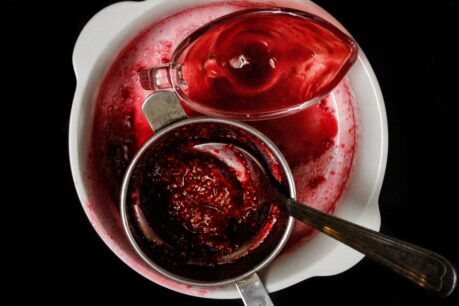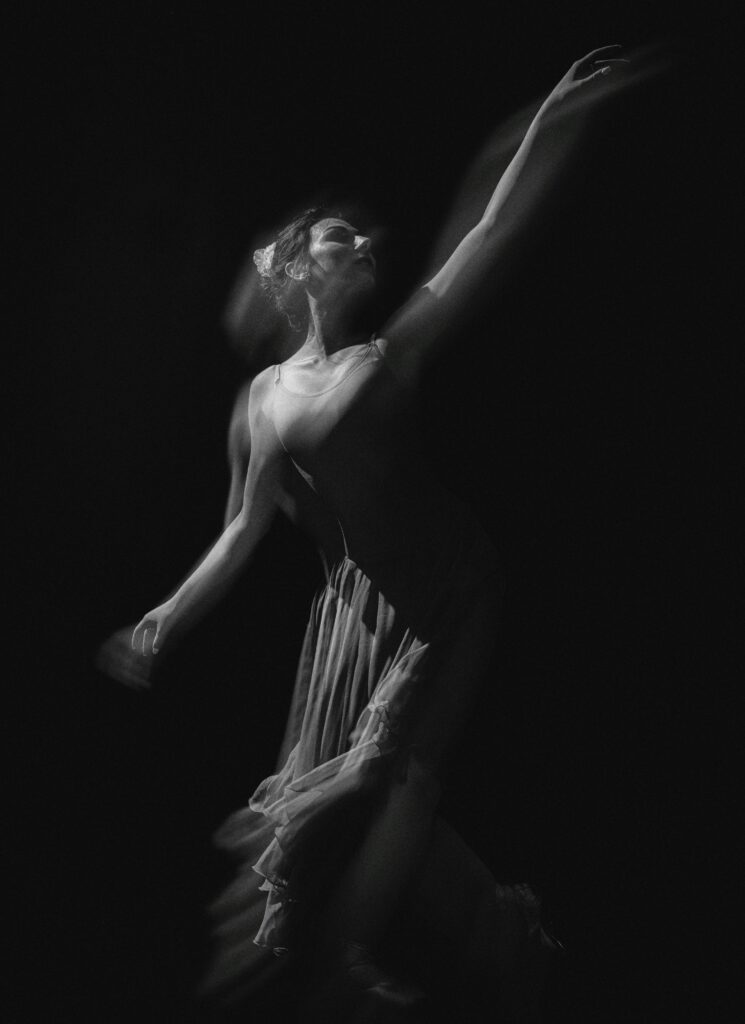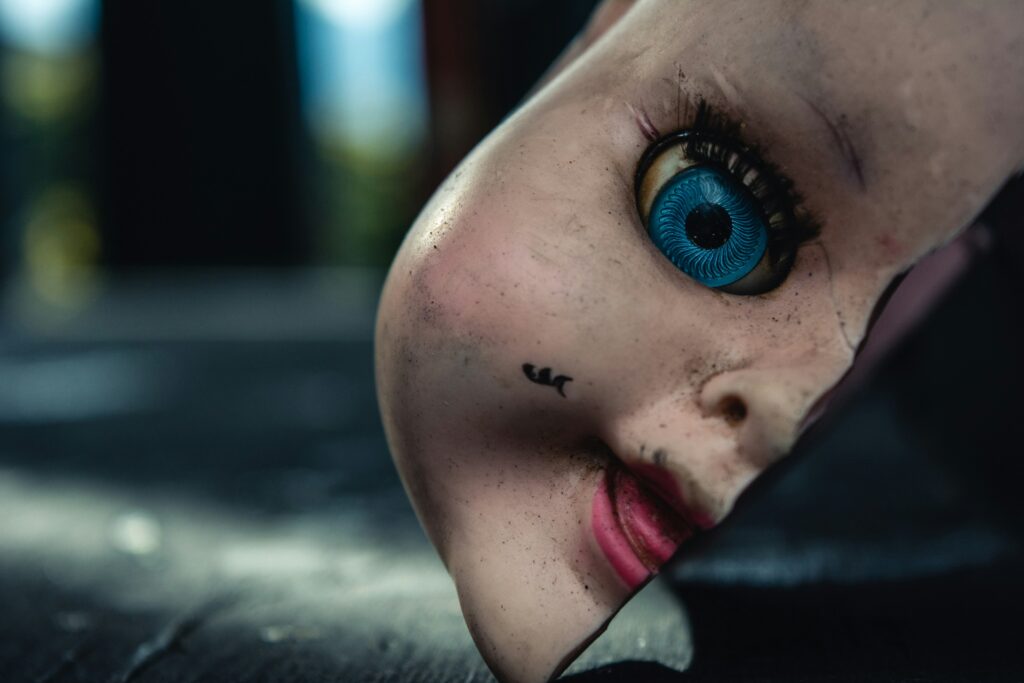The Raspberry Pip Maker
Lottie O'conor, November 2, 2023
‘There’s total silence in the courtroom,’ my father says. ‘Not a squeak. You could hear a pin drop.’ As he speaks, he scoops a dollop of marmalade onto his toast. He flattens the marmalade mountain with the back of the spoon rather than spreading it, before returning to the jar for another spoonful. ‘Then the door opens and a man steps up to the witness stand, wringing his hat in his hands like a dishcloth.’
Another dollop of marmalade undulates slowly downwards.
‘So the judge says, please state your name and occupation,’ my father continues. ‘The man, he places his hat down in front of him and he says, Name’s Thomas Nicholson y’honour. And I’m a raspberry pip maker.’
My brother and I snort with laughter. Across the table, my mother rolls her eyes.
My father is in full flow now. The plate in front of him is seventy percent marmalade. ‘A WHAT? the judge says. A raspberry pip maker y’honour. And WHAT, pray, is a raspberry pip maker?’
We’ve both stopped eating, keen to concentrate fully on what’s coming next.
‘A raspberry pip maker. You see, due to the war and all, it’s hard to get real raspberries for jam. So they have to use what’s going, you see. But folks, they like to feel like they’re getting the real deal. So I chip little bits of wood – ever so tiny – into the jam. To make ‘em feel like they’re getting pips. A raspberry pip maker.’
My father guffaws with laughter, shaking his head as if he can barely believe his own story.
‘These kids will grow up not knowing what’s actually true and what’s total nonsense,’ my mother says sighing heavily, ‘if you keep telling them that all these crazy stories are real.’
I can see she’s smiling, underneath it all. ‘Do you really need that much marmalade?’
‘If you can still see the toast, there is not enough marmalade,’ my father intones solemnly. ‘And they are real.’
Later, as we walk the dog along the road that leads to the railway line, my father points up to a derelict house standing bleakly behind a broken fence. ‘Haunted?’ I whisper. He snorts, shaking his head. ‘Of course not. Why would it be haunted? No, no. That’s where the Wooey lives.’
He kicks a half eaten sandwich off the pavement, away from the dog’s salivating mouth. ‘Not for you, Cassie,’ he mutters.
‘The who?’
‘Sorry?’
‘Who did you say lives in that house?’
‘Oh, that one? The Wooey,’ my father says with a dismissive hand gesture. ‘Nothing much to see here. He doesn’t do much, mainly looks out of the window.’
I peer up at the left side of the house, where a tilting turret casts a vaguely threatening shadow.
My father shakes his head. ‘Such a shame about the tower,’ he says. ‘The Wooey is made of anti-matter you see. Very heavy. That’s why that tower he sits in is slowly sinking into the ground. God knows what he’s do when it reaches the bottom.’
We continue along the road. ‘Have I ever told you about how sandwiches are named after the Earl of Sandwich?’ He says brightly.
On the way back, we pass the small stone lions that adorn the gateposts on the road with the big houses. I know they are chipped because they once fought in a battle against the statue of Boudicca that lives on Victoria Embankment. Other statues were involved too, although the specifics tend to be different each time. But it’s always the Griffin from Temple Bar that leads the charge.
When we have a new wardrobe delivered, my father tells the delivery guy a story about a man who fell in love with a wardrobe, and then ate it. ‘Then he went mad,’ he continues, in his most serious voice. ‘Because he realised he couldn’t eat the space where the wardrobe had been.’
My mother gives the delivery guy a bigger tip than he probably deserves.
The stories keep coming, one after another, year after year. Suddenly I am ten; double figures, teetering towards a time when parents morph into something alien and other.
I still love the stories. So they keep coming. Until one day when my father opens his mouth, it isn’t a story that comes out, it is a groan and then a shudder and then a stream of bloody vomit. There are paramedics and machines and lights flashing and so much noise and I find myself in the back of an ambulance, holding a hand that feels like it’s made of rubber, like a puppet. I tell stories to the air until a doctor tells us he’s ok, he had a close call. He should recover. Should. We can see him. He’s wearing a silk shirt in a light shade of teal, chosen for the Easter service at church. It shows every stain.
We go home and carry on. He tells more stories, until the next time the ambulance comes, and then the next time and the next time and the next time. Years creep up, one, two, three, four, five, six.
We go home again and carry on and carry on and carry on. Even the brightest stories can’t hide the cracks in his voice.
When he dies, the stories stop. Looking into the spinning vortex of his death is too much, so instead I look away; feel the absence of the things that are sucked into the abyss after him. The madman and his wardrobe. The Earl of Sandwich. The stone griffin. The Wooey, in his slowly sinking tower. The raspberry pip maker.
My diary lies in the back of a drawer, unwritten. One day I pull it out, scribble an angry eruption of words. I cannot write about the vortex, so I write about other things, things that hurt me just enough. I write about boys I think I love, girls I think I admire. I write about parties and slights and sniggers and furtive glances and rough fingers and awkward phone calls and agonising daydreams. These things burn like a tattoo needle, with just enough pain to make me feel brave. I do not write about my father. I do not write about the stories.
*
They say we all turn into our parents in the end.
It happens to me slowly, as my children begin to ask questions and I start to realise how dark the world is, how many sharp edges hover around every corner, threatening to shoot out like a whip and carve off tiny pieces of their innocence, slice by slice.
It was a never a conscious decision, but before I realise I’m doing it, I start to tell stories. I tell them that inside the trunks of trees are helter skelters for squirrels. I tell them that zebras play chess and that dogs go to heaven and that the potholes in the road were made by angry trolls. On the corner of the street I pause, raising my hand to greet the Wooey as he peers through a gap in the boarded up windows. Don’t be scared of him, I tell my children. He’s the one who makes the coins the tooth fairy leaves under your pillow.
At a family wedding I hear a story, passed from mouth to mouth so many times that it probably isn’t true. These were your father’s last words, they say to me. Have you not heard this before? I haven’t. The only person who really knows the truth is my mother. She was the only one in the room, the only person who heard the last words that came out of that mouth of a thousand tales. I add this quietly to the pages of questions it’s already too late to ask her. I lost her to a different vortex; a different story.
Like I said, it’s probably not true anyway.
That night, I tell my children a story about two doors. If you turn right as you fall asleep, you’ll step across the doorway and drop right back down into your bed. But what if you turn left? What if you choose the purple door, covered in stars? That will take you to a different place each night, I tell them. Where shall we go tonight?
Later, I lie back, staring up at the empty white of the ceiling, and I think about the thing someone told me about my father. About the last thing he ever said.
Lights flash across the ceiling. Just car headlights sneaking through the gap in the curtains. Probably. I hear a sigh; a laugh; the chip chip chip of a chisel. The stories creep back, slowly at first, as if they are afraid of me. As if they’re worried I won’t recognise them, after all this time. But then I start to smile and they move faster, bounding into my arms like a dog returning to its master.
Thomas Nicholson places his hat carefully next to him on a stool, then, eyes narrowed, he picks up his chisel. Too big, he frowns, peering down at a splinter of wood. Across the street, the Wooey adjusts his cloak, staring out across the rooftops to the stars beyond. This side of his tower is noticeably sinking now, the floor sloping at an angle. If he listens really hard he can hear the groan of delight from the Earl of Sandwich, as he bites into the perfect marriage of a rare steak between two slices of crisp, freshly baked bread.
Across the channel, a man in Paris lets out a wolf-like howl, falling to his knees in front of an empty wardrobe-shaped space. Miles away, in the centre of London, a fly lands on the beak of a stone griffin. Most people would miss it, but if you happened to be looking in just the right place at the right second, you might see him blink.
And in a small makeshift downstairs bedroom, as I sleep the wooden slumber of a teenager behind a closed door upstairs, my father smiles, takes one last breath, sharp, clean and pure, and says, with the voice of a master storyteller delivering his final verse,
‘My God. It’s all been so wonderful.’
You may also like

Eyes of the Beholden
Unspoken desires linger in the shadows of a teacher's life, revealed through art
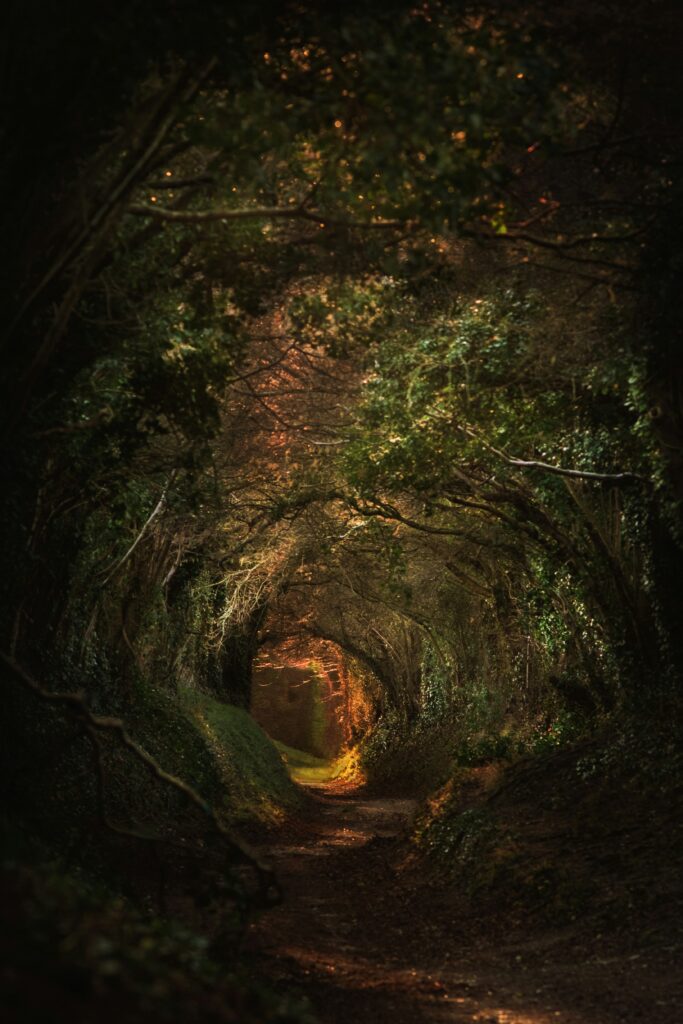
LOST
Bessie's odyssey through stormy nights, lost love, and secret graveyards unfolds with haunting beauty in "Lost" by Sandra Dennis.

Water Rising
Amidst a flood, a woman grapples with the past, and confronts the consequences in this haunting narrative of resilience.
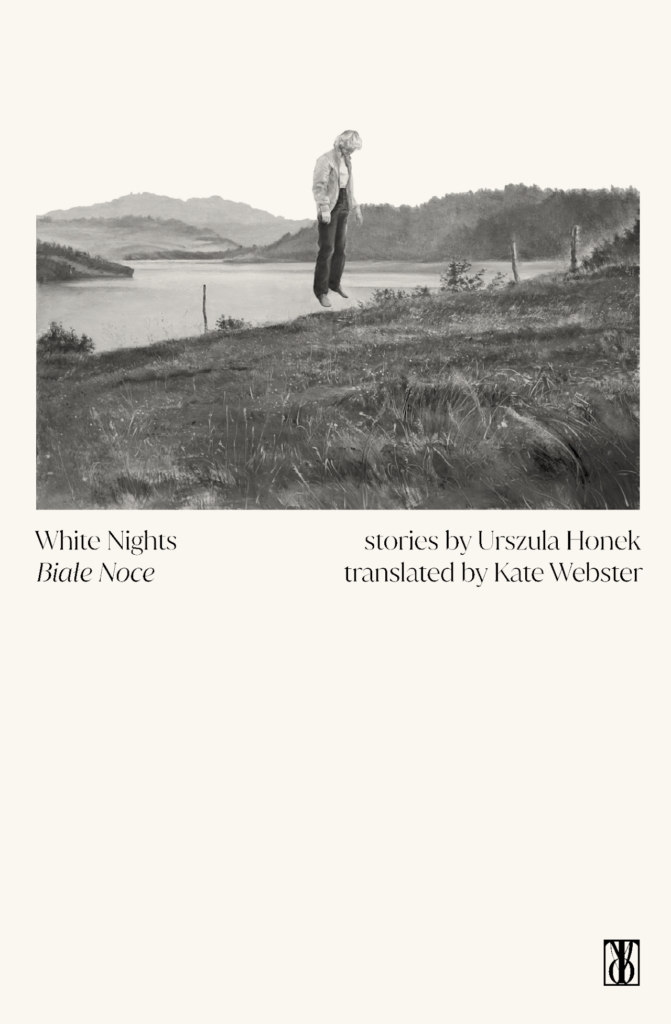
Book Review: White Nights by Urszula Honek
The debut short story from Polish writer Urszula Honek, White Nights, is akin to reading an account of a haunted place – one that is beautiful and devastating in equal
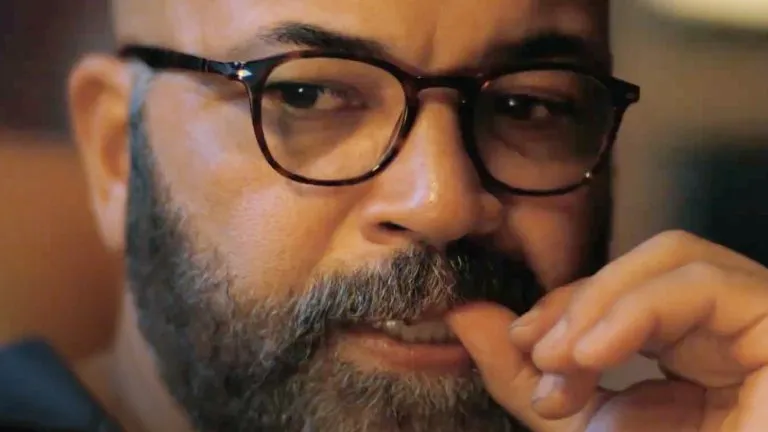
Beyond the Surface: The Multifaceted Lives of ‘American Fiction’
In essence, "American Fiction" and the experiences it draws from remind us that we are indeed more than the sum of our parts.
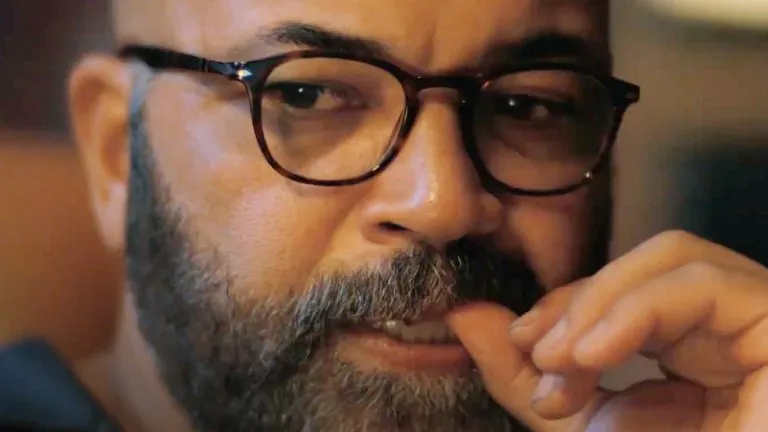
Beyond the Surface: The Multifaceted Lives of ‘American Fiction’
The narrative of “American Fiction” unfolds with a dual focus: it not only scrutinizes the unique pressures faced by Black creatives but also delves into the intricate and sometimes tense…
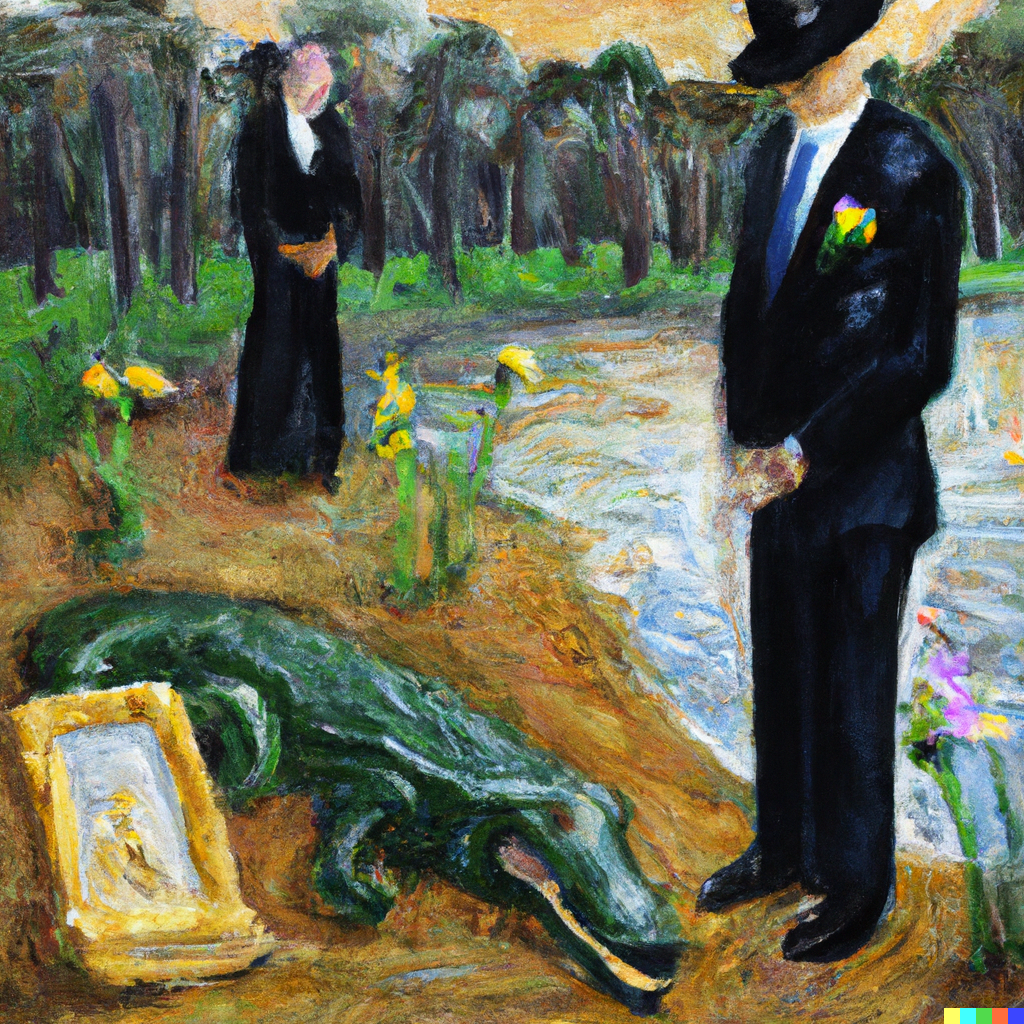
Uncle Bobby’s Funeral
Reluctant family faces the eccentricities of Uncle Bobby's funeral in swampy Chipley.




